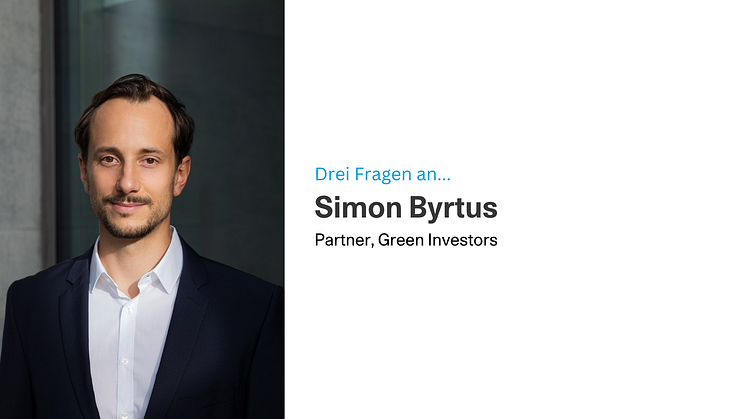
News -
Three questions to Simon Byrtus, Green Investors
Simon Byrtus is a partner at Green Investors and a new member of the H2 Start-up Cluster at DIE GAS- UND WASSERSTOFFWIRTSCHAFT. Green Investors identifies, develops, and finances projects that make a pioneering contribution to the energy transition. With a hands-on consulting approach, Green Investors provides emerging companies access to a valuable network and supports them with crucial expertise in business development.
-
What does Green Investors do?
At Green Investors, we develop and finance companies and projects that shape the energy system of tomorrow. We contribute capital and expertise to forward-looking initiatives and make them attractive to investors and banks. Through strategic consulting, our network, and operational support, we shape scalable business models and thereby accelerate the energy transition.
-
Your mission statement says you aim to reconcile sustainable living with economic growth. To what extent is this possible with hydrogen and certain hydrogen technologies?
We firmly believe that hydrogen is essential for decarbonizing industry, mobility, and long-term energy storage. Although we are still at the beginning of a steep market and learning curve, economically viable investments in the ramp-up of the hydrogen market can already be made today. At Green Investors, we take a holistic view of the value chain and identify both global and local business models at an early stage. To ensure our projects remain competitive, we continuously compare the levelized cost of hydrogen, ammonia, methanol, and SAF against international benchmarks and consistently participate in projects that fall within the lowest 25% of cost. In Brazil, for example, we achieve LCOH values of around €3/kg for RFNBO-compliant hydrogen.
-
You recently announced your investment in Decahydron. How does this investment align with your mission?
With Decahydron, we are investing in a company that extracts hydrogen directly from geological formations. In certain regions of the world, groundwater reacts with iron- and magnesium-rich rock at depths of just a few hundred meters, continuously producing hydrogen. This allows for the extraction of vast quantities of high-pressure, high-purity hydrogen. The projected production costs of around €1/kg make this “natural” hydrogen already the cheapest production method in the world—and, in the medium term, more competitive than natural gas including CO₂ costs. At the same time, the same rock formations enable permanent CO₂ storage through underground mineralization. In this way, we combine two business models with enormous economic and ecological potential.

